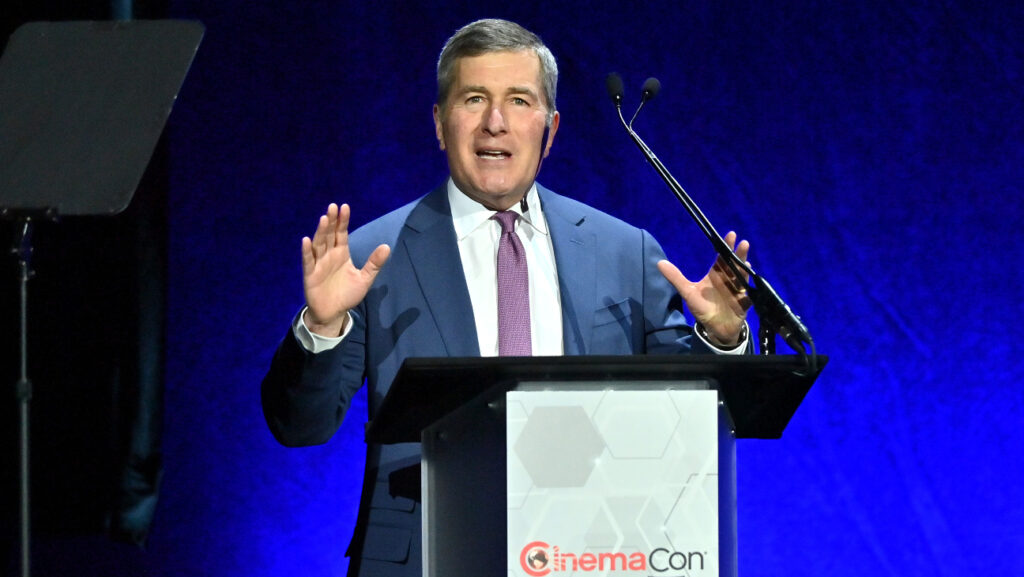Is Hollywood’s top lobbying group stepping off the sidelines? In a strongly worded statement from the normally measured Motion Picture Association, CEO Charles Rivkin called on OpenAI to take steps to protect intellectual property in its latest product, Sora 2, an invite-only app that allows users to place themselves in hyperrealistic clips trained on major studios’ IP.
“Since Sora 2’s release, videos that infringe our members’ films, shows, and characters have proliferated on OpenAI’s service and across social media,” Rivkin stated. “While OpenAI clarified it will ‘soon’ offer rightsholders more control over character generation, they must acknowledge it remains their responsibility – not rightsholders’ – to prevent infringement on the Sora 2 service. OpenAI needs to take immediate and decisive action to address this issue. Well-established copyright law safeguards the rights of creators and applies here.”
The MPA, which reps Disney, Netflix, Paramount, Amazon MGM Studios, Sony, Universal, and Warner Bros. Discovery, has in recent years taken strong stances on piracy and shutting down illegal websites that stream movies and TV shows.
While it has issued two-sentence statements in support of Disney, Universal and Warners lawsuits against AI company Midjourney over outputs infringing on studios’ popular characters (think: prompts creating Darth Vader or Shrek memes), the lobbying group has been relatively quiet on the major impacts of artificial intelligence tools on the entertainment industry.
Since the invite-only launch of Sora 2 on Sept. 30, Hollywood has reckoned with the “opt in” nature of the OpenAI app. User prompts can generate manipulated versions of, say, South Park or Pokémon or SpongeBob SquarePants characters.
But apparent backchannel conversations appear to be having an effect. On Oct. 3, Open AI CEO Sam Altman backtracked slightly in a note that signaled a slightly more conciliatory approach toward rightsholders. “First, we will give rightsholders more granular control over generation of characters, similar to the opt-in model for likeness but with additional controls,” Altman noted.
That change in thinking may have been prompted by the multiple legal salvos that the major studios have lobbed at Midjourney. And at least one major talent agency, WME, has informed the tech giant that all of its clients would be opting out of having their likenesses featured on the video tool.
“Our position is that artists should have a choice in how they show up in the world and how their likeness is used and we have notified OpenAI that all WME clients be opted out of the latest Sora AI update, regardless of whether IP rights holders have opted out IP our clients are associated with,” WME’s digital chief Chris Jacquemin wrote to agents on Oct. 1.
But for the MPA’s Rivkin, the wording of “immediate and decisive action” strikes a more urgent tone than the trade org’s take on Disney and Universal’s major lawsuit against Midjourney in June. At that time the MPA wrote, “A balanced approach to AI that both protects intellectual property and embraces responsible, human-centered innovation is critical for maintaining America’s global leadership in creative industries.”
Whether that strident tone aimed at OpenAI marks a turning point for Hollywood studios’ dealings with Big Tech now seems like the big question.

